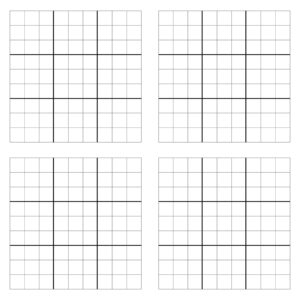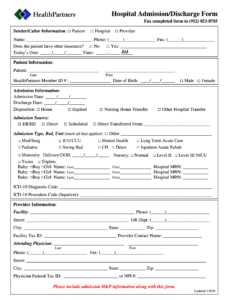PrintableJD.Com – Printable DBT Stop Skill – Dialectical Behavior Therapy (DBT) is an evidence-based psychotherapy that has been highly effective in treating a variety of mental health conditions such as borderline personality disorder, depression, anxiety, and substance abuse disorders. DBT consists of various skills to help individuals regulate their emotions, improve relationships, and manage daily life stressors more effectively. One of the most crucial skills in DBT is the STOP skill.
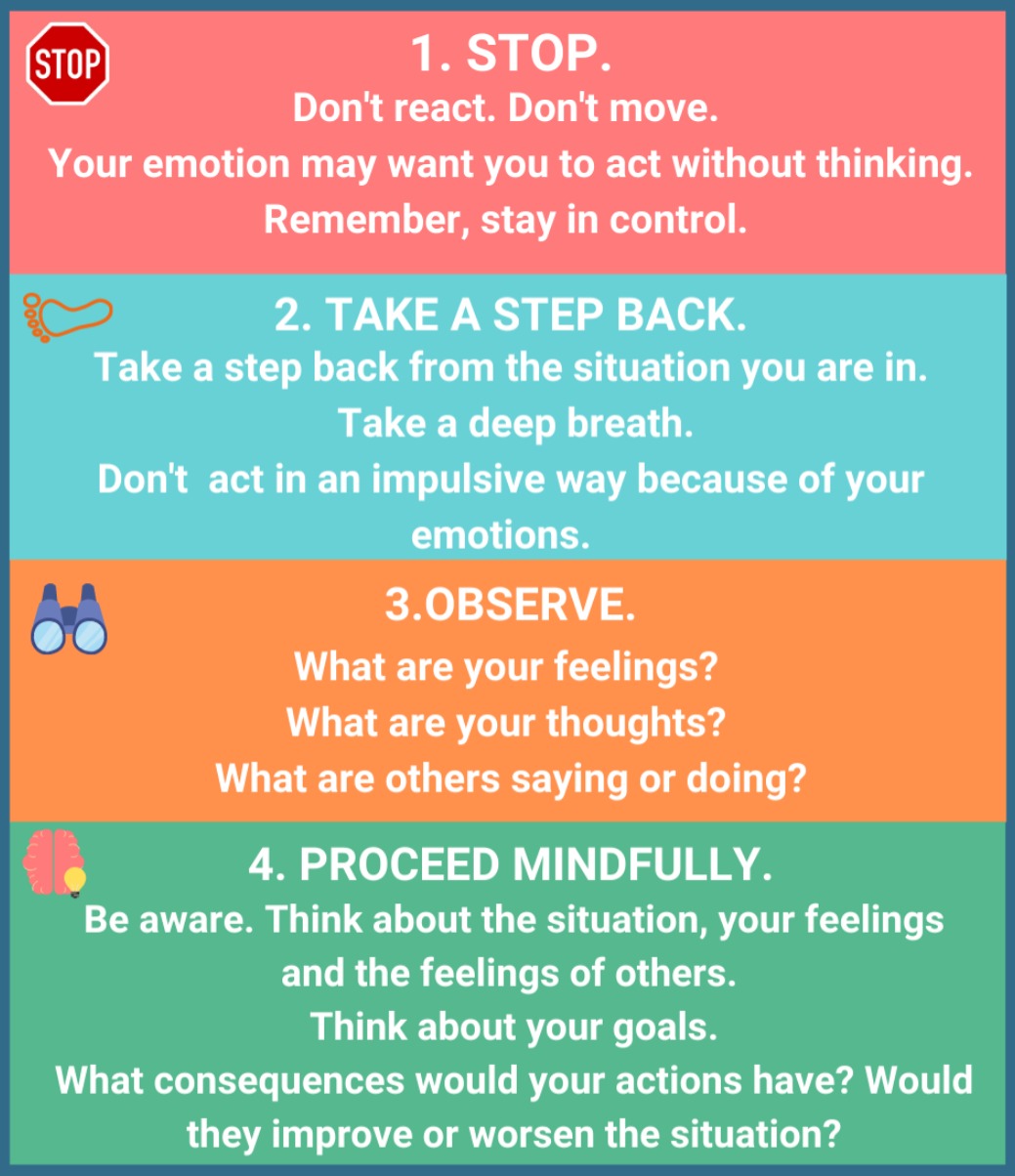
The STOP skill is designed to help individuals pause and interrupt impulsive or destructive behaviors before they escalate into something worse. This skill involves taking a step back from the situation at hand, observing one’s thoughts and feelings non-judgmentally, and proceeding with mindful action.
What is Stop In DBT?
The stop is a DBT skill that can be used to help individuals regulate their emotions and control impulsive behaviors. The Stop skill is designed to interrupt automatic and impulsive responses to emotional triggers by encouraging the individual to pause and reflect before taking action. This skill can be useful in many situations, such as when experiencing strong emotions or when faced with a challenging situation that may trigger an automatic response.
To practice the Stop skill, individuals are encouraged to print out a Stop sign (which can be found online) and place it in a visible location as a reminder. When an emotional trigger arises, the individual should stop whatever they are doing, take a deep breath, and look at the Stop sign. They should then take a few moments to reflect on their thoughts and feelings before deciding how to respond. By practicing this skill regularly, individuals can learn to respond more effectively to emotional triggers and make better choices in challenging situations.
Overall, incorporating the Stop skill into daily life can help individuals develop greater self-awareness and improve emotional regulation skills. By learning how to pause, reflect, and respond mindfully in difficult situations, individuals can reduce impulsivity and make healthier choices for themselves over time.
What is the Role Of a DBT?
The role of a Dialectical Behavior Therapy (DBT) therapist is to help individuals with emotional dysregulation, particularly those with borderline personality disorder. DBT therapists use various techniques and skills to help their clients regulate their emotions effectively. One such skill is the “STOP” skill, which involves stopping oneself from engaging in impulsive or dangerous behavior.
DBT therapists teach their clients the STOP skill through a printable worksheet that outlines steps to take when feeling overwhelmed or emotionally dysregulated. The STOP acronym stands for Stop, Take a Step back, Observe your breath and body sensations, and Proceed mindfully. By following these steps, individuals are better able to manage difficult emotions without acting impulsively or engaging in self-destructive behaviors.
Overall, the role of a DBT therapist is to provide support and guidance to individuals struggling with emotional regulation issues. Through various skills like the STOP technique, DBT therapists help their clients learn how to cope with triggering situations without resorting to harmful behaviors and ultimately lead more fulfilling lives.
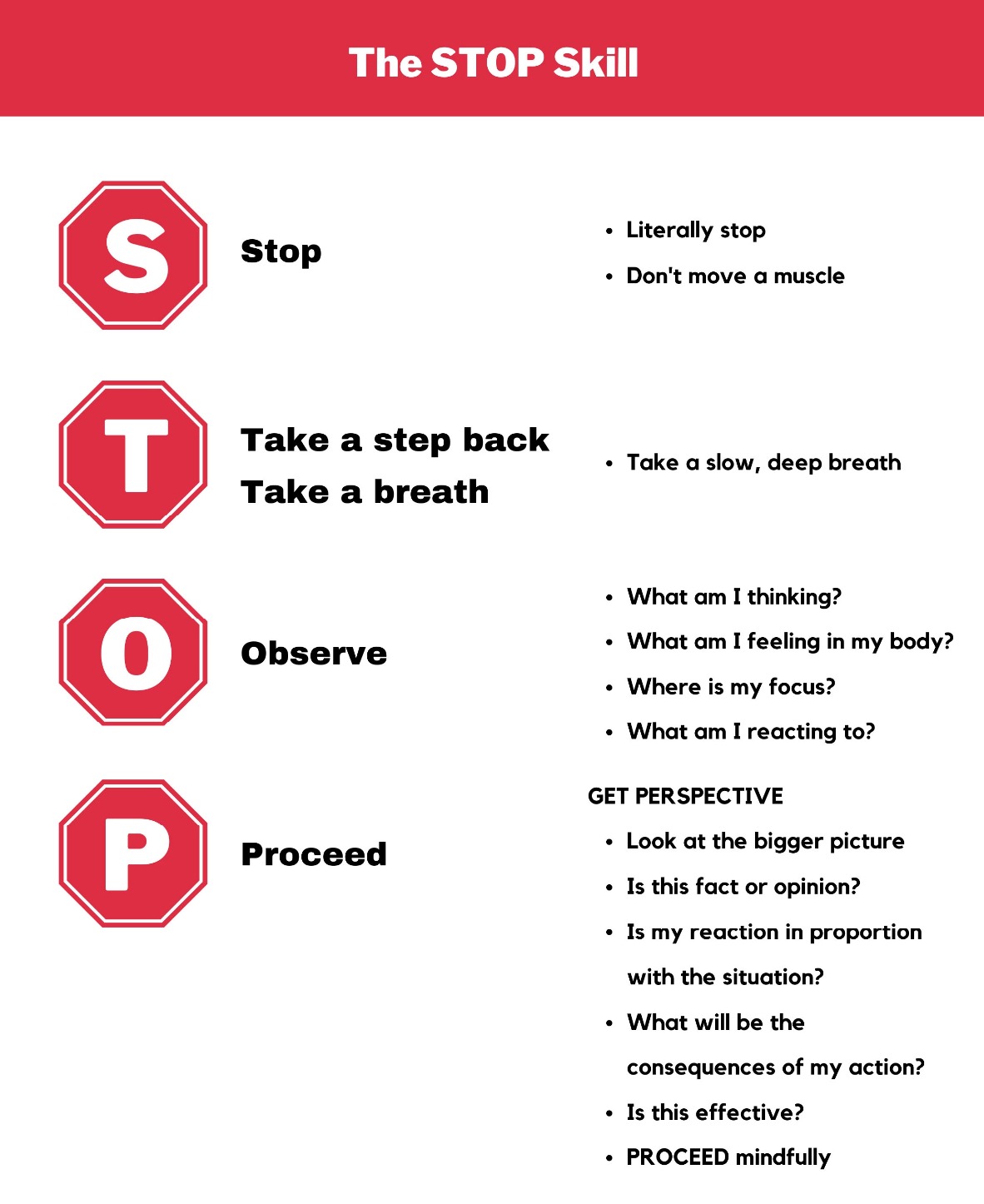
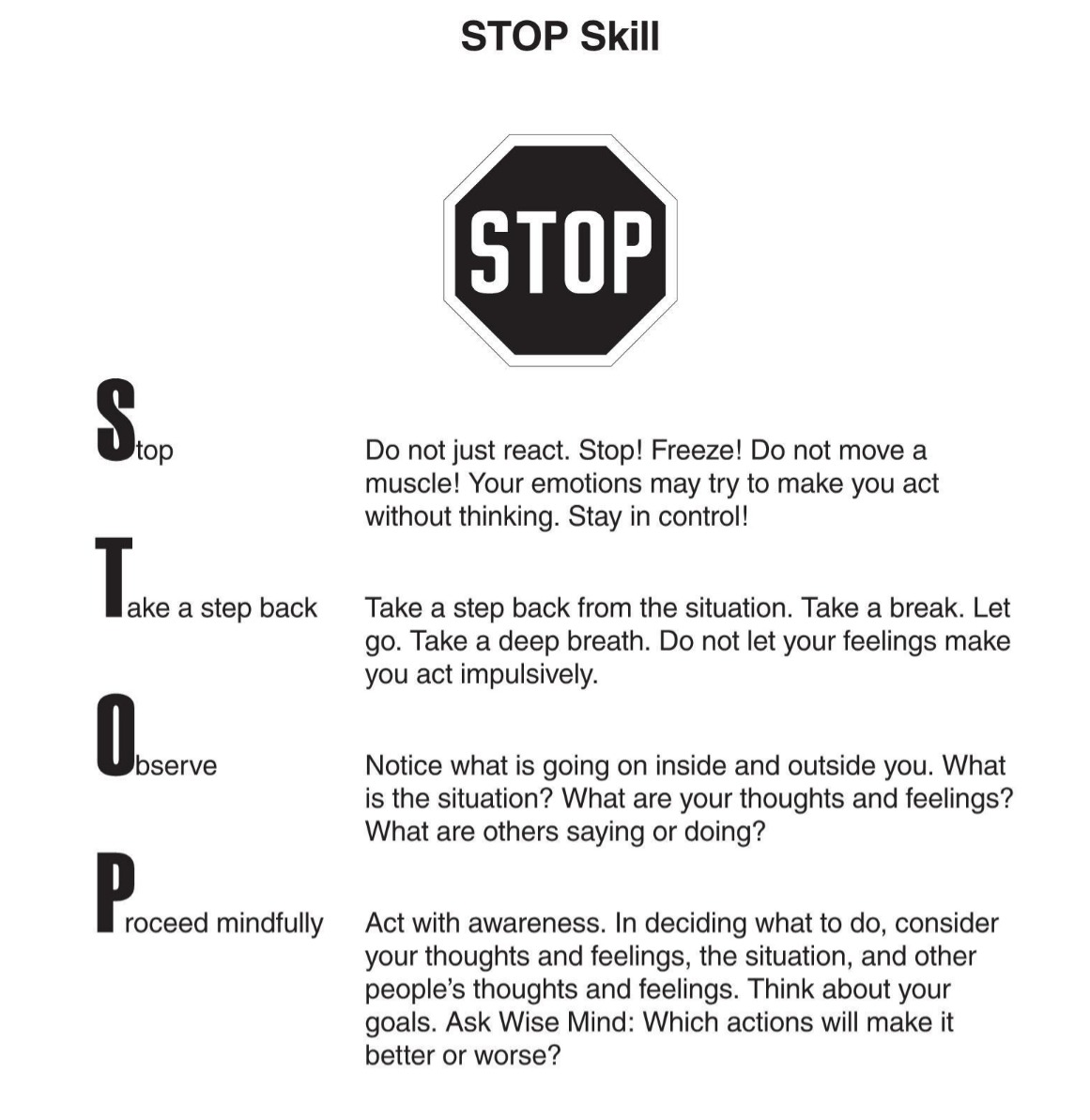
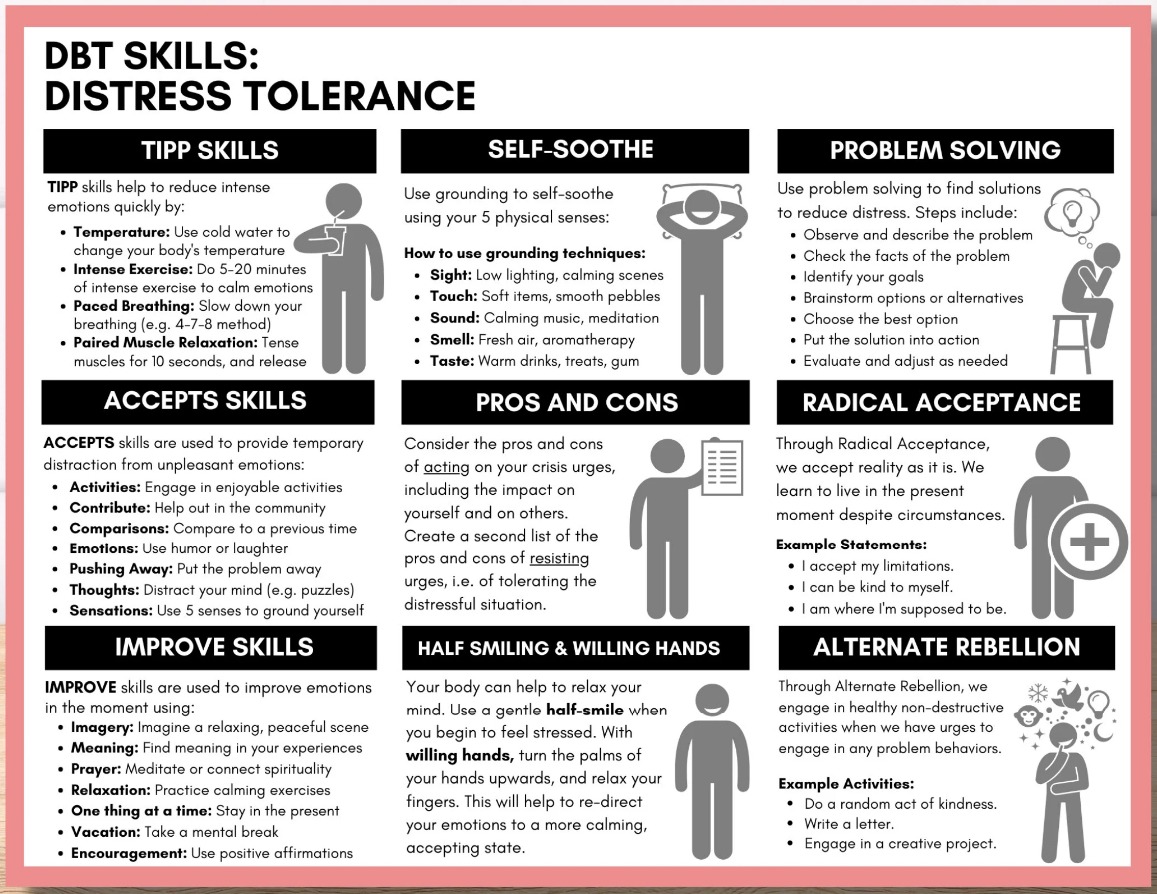
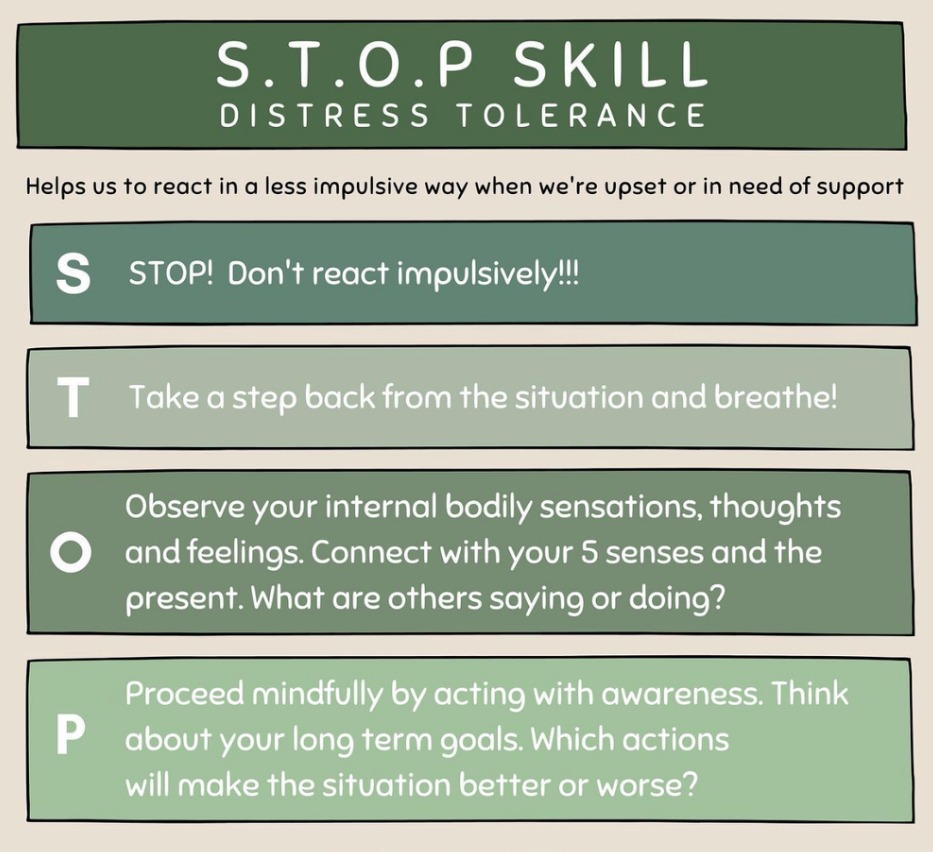
Printable DBT Stop Skill
Dialectical Behavioral Therapy (DBT) is a form of psychotherapy that emphasizes balancing acceptance and change. It is widely used to treat individuals with borderline personality disorder and has been found effective in managing emotions, reducing self-harm behaviors, and improving overall mental health. One of the key skills taught in DBT is the Stop Skill, which aims to help individuals stop an impulsive behavior or thought before it causes harm.
A printable DBT Stop Skill worksheet can be a helpful tool for individuals practicing this skill outside of therapy sessions. The worksheet typically includes steps such as “stop,” “take a step back,” “breath,” “evaluate options,” and “proceed mindfully.” These steps guide individuals through the process of stopping an impulsive behavior or thought by taking a moment to pause, reflect on their options, and proceed in a more thoughtful manner.
Using a printable DBT Stop Skill worksheet can also serve as a reminder for individuals to practice this skill regularly. By having the worksheet accessible at all times, they can refer to it whenever they feel overwhelmed or triggered by intense emotions. Additionally, filling out the worksheet after successfully using the Stop Skill can reinforce positive behaviors and provide motivation for continued use in future situations.

